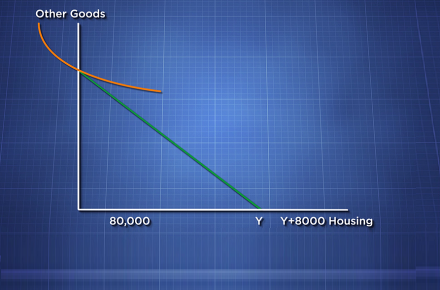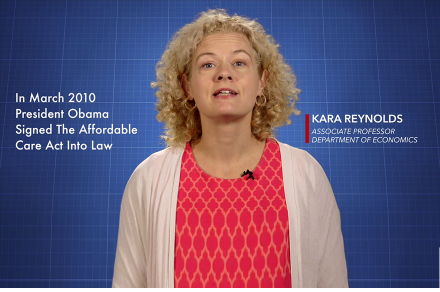Throughout this online course you are introduced to economic policy concepts and have the opportunity to analyze and apply what you've learned by looking at a similar policy. You will probe the foundations of microeconomic theory, focusing on the behavior of individuals, firms, and the interaction of these agents in the marketplace. You will examine forms of market structure and explore how these impact firm behaviors. You’ll also learn the concept of market efficiency and investigate how a variety of imperfections (including externalities and public goods) can reduce the efficiency of the marketplace.
Throughout this economics course you will:
- Carefully consider the role of government in the economy
- Analyze the economic efficiency of various public policies
In ECON 600, you and fellow students will work as a learning community to improve the mathematical skills necessary in the understanding of the role of mathematics in economics.
Course objectives:
- Derive both the individual’s and the market demand curve mathematically
- Explain intuitively how consumers make decisions
- Use the model of consumer behavior to demonstrate how policy changes will impact consumer choices
- Thoroughly review the most powerful model in economics, supply and demand
- Derive the long-run and short-run cost functions of a firm mathematically
- Interpret how firms decide what production technologies to utilize
- Calculate the market equilibrium price and output in a competitive market
- Use the model of the competitive market to explain how policy changes will impact market price, output, and societal welfare
- Calculate and examine the market equilibrium in various forms of imperfect competition
- Explain intuitively the welfare loss that occurs because of various forms of market failures
- Examine imperfections such as externalities, and consider ways to correct for these imperfections
You will explore topics such as the impact of taxes and subsidies on consumer and firm behavior, the impact of mergers on market prices, and the economic determinants and potential solutions to environmental problems.
Kara Reynolds, Associate Professor and MA in Economics Program Director developed this course. Her research interests include the political economy of trade protection, particularly anti-dumping protection, and the impact of trade liberalization on workers and firms. Reynolds recently completed a paper with Chad P. Bown, titled "Trade Flows and Trade Disputes,” in the Review of International Organizations, June 2015.
Click here for the official course description from the American University Catalog.
Learn more today. Call us at 855-725-7614 to speak to an admissions representative, or request more information here.








